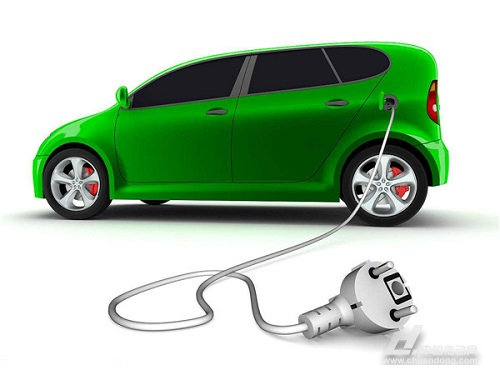
The development of electric vehicles is a general trend, and countries including China and Germany have announced plans to end fuel vehicles.
The huge market has attracted many companies to flock. Recently, the inventor of vacuum cleaner James Dyson announced that the company will launch its own research and development of electric vehicles in 2020. Dyson can be said to be "underexperienced" in building a vehicle. Although he has engine technology, he does not have chassis technology and production plants at all.
The electric car market is already very crowded. Not only are electric car giants such as Tesla, but also traditional companies such as Volkswagen and Volvo, and a large number of Chinese Internet companies are involved.
At present, Dyson already has 400 engineers involved in the automotive project, quietly developed at least two and a half years. However, building a car is not just a matter of technology. It is a long process to bring a car to market. Dyson will also face challenges.
A manager of a traditional car company stated to the author: “We are about to launch an electric car. We started the entire process five or six years ago, and this is under the premise that we already have manufacturing equipment, a mature supply chain, and human resources. ."
However, the profitability of electric vehicles remains elusive.
Take Tesla as an example. Although Tesla sold 76,000 electric vehicles worldwide last year, its performance still showed losses. Tesla also received the U.S. government’s car subsidy. Therefore, even if Dyson wants to develop an electric vehicle, even if it receives government subsidies, it is still difficult to guarantee profitability.
From a technical point of view, Dyson has now developed the world's most advanced and safest solid-state battery technology while supporting fast charging. As early as 2015, Dyson acquired Sakti3, the world's leading solid-state battery company, for US$90 million.
At the time, Dyson founder James Dyson said: "The automotive market has emerged a large number of new players." Implied that Dyson's interest in the field of electric vehicles.
Traditional car makers are also investing heavily in battery technology. For example, Volkswagen is preparing to sign a long-term supply agreement for cobalt, requiring suppliers to supply Volkswagen with a ten-year contract starting in 2019.
James Dyson said: "Where the battery is produced, where the electric vehicle should be produced. Asia is a huge market, and we need to be closer to the market. Moreover, Asia has the fastest response rate compared to the United Kingdom or Europe. ."
China will not only become a big consumer of electric vehicles, but also have the potential to become a consumer power of luxury electric vehicles. According to data from the China Automobile Association, sales of electric vehicles and plug-in hybrids in China exceeded 500,000 vehicles in 2016, a year-on-year increase of 53%, and sales of pure electric vehicles were 25.7 million, an increase of more than 120% year-on-year, but 90% of them. These are all Chinese domestic car brands.
Under the background of encouraging the development of electric vehicles in China, the production of electric vehicles will receive different degrees of subsidies. This also encouraged a large number of local Chinese companies to switch to the production of electric vehicles.
For example, the Jiangling Group has established a new energy automotive division since 2015, invested 8 billion yuan to develop new energy vehicles, and established the New Energy Research Institute to cooperate with Tsinghua University, Beihang University and Harbin Institute of Technology. Last week, Jiangling Group also established a 400 million yuan fund with Antai Technology and Qifu Capital to invest in new automotive materials such as batteries and auto bodies.
However, the current layout of domestic new energy electric vehicles is still mainly in the low-end. Taking Jiangling Motors as an example, the price of its new energy vehicles is generally between 40,000 and 50,000 yuan. The company's goal is to be able to account for about 10% of the domestic new energy market share by 2020.
Qiu Tiangao, chairman of Jiangling Group, stated to the author: “The market for automotive materials is huge, but in general, China started late in this regard, the foundation is weak, the industrial chain is not yet close, and auto manufacturing companies and materials are in urgent need. Wide-ranging, cross-industry, cross-professional cooperation between component companies and research institutes."
This shows that Chinese auto makers are committed to investing in technology and R&D. Local automakers also hope to expand the production line from low-end to high-end. Against the background of the rise of a large number of Internet companies, the Chinese automobile industry has ushered in tremendous changes. At the end of this year, the first high-end model ES8 of Weilai Automobile will be mass-produced and is expected to sell for RMB 300,000 to RMB 400,000. The mass production of this vehicle, which is considered as the most promising model to challenge the Tesla ModelX, will start China Electric. Another new milestone in the car market.
IGET Disposable Vape is very popular in the Australia. Like XXL, KING,LEGEND, BAR,Plus. Quality is very good. it has 1000puffs Disposable Vape, OEM&ODM can be accepted.
Iget Xxl,Iget Xxl Vape Pen Kit,Iget Xxl 1800Puffs Vape Pod Device,Iget Xxl E-Cigarette
Shenzhen Uscool Technology Co., Ltd , https://www.uscoolvape.com
